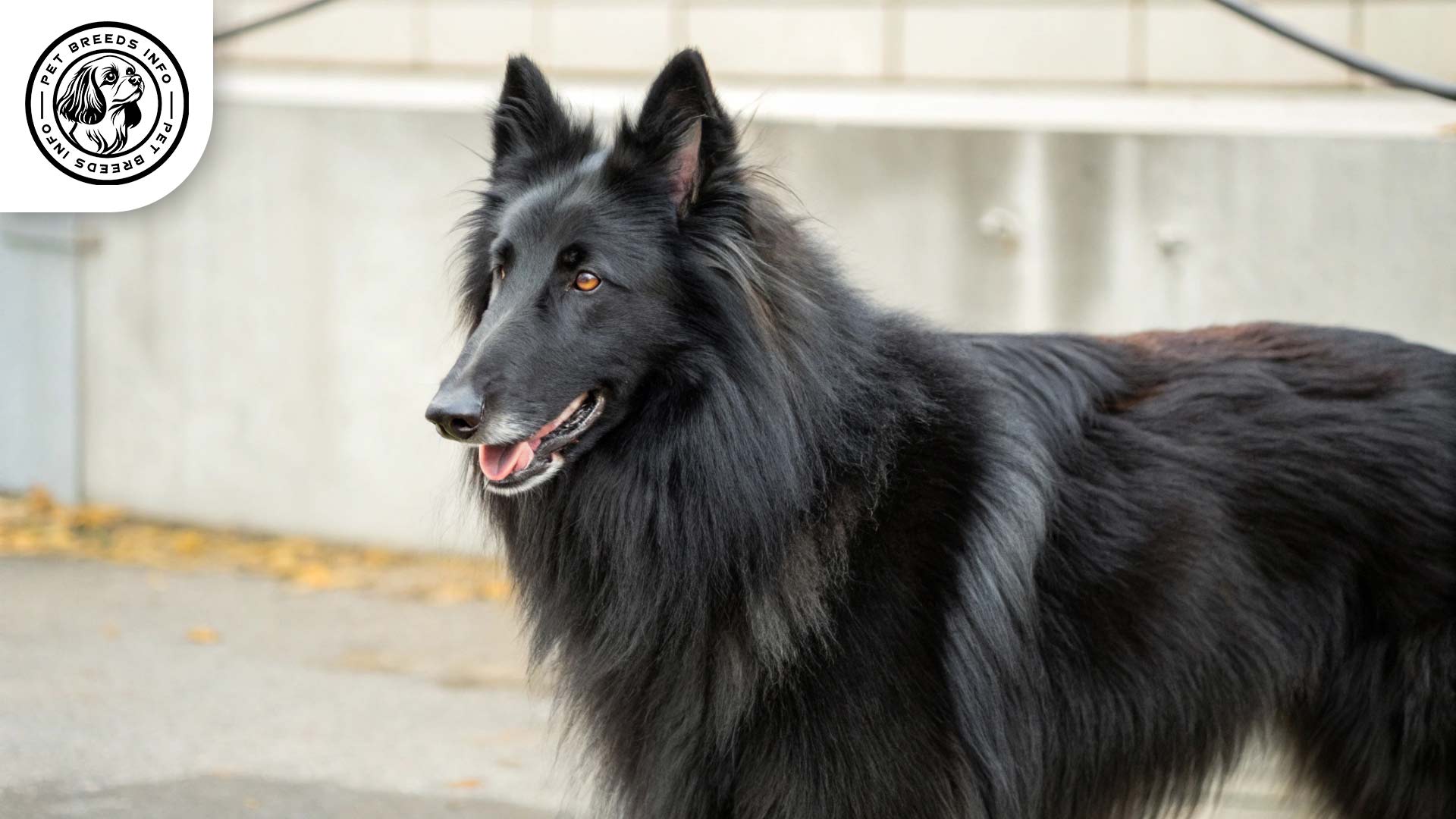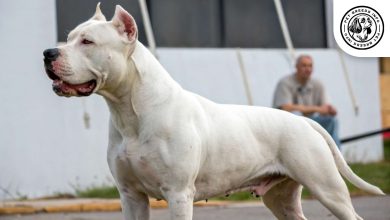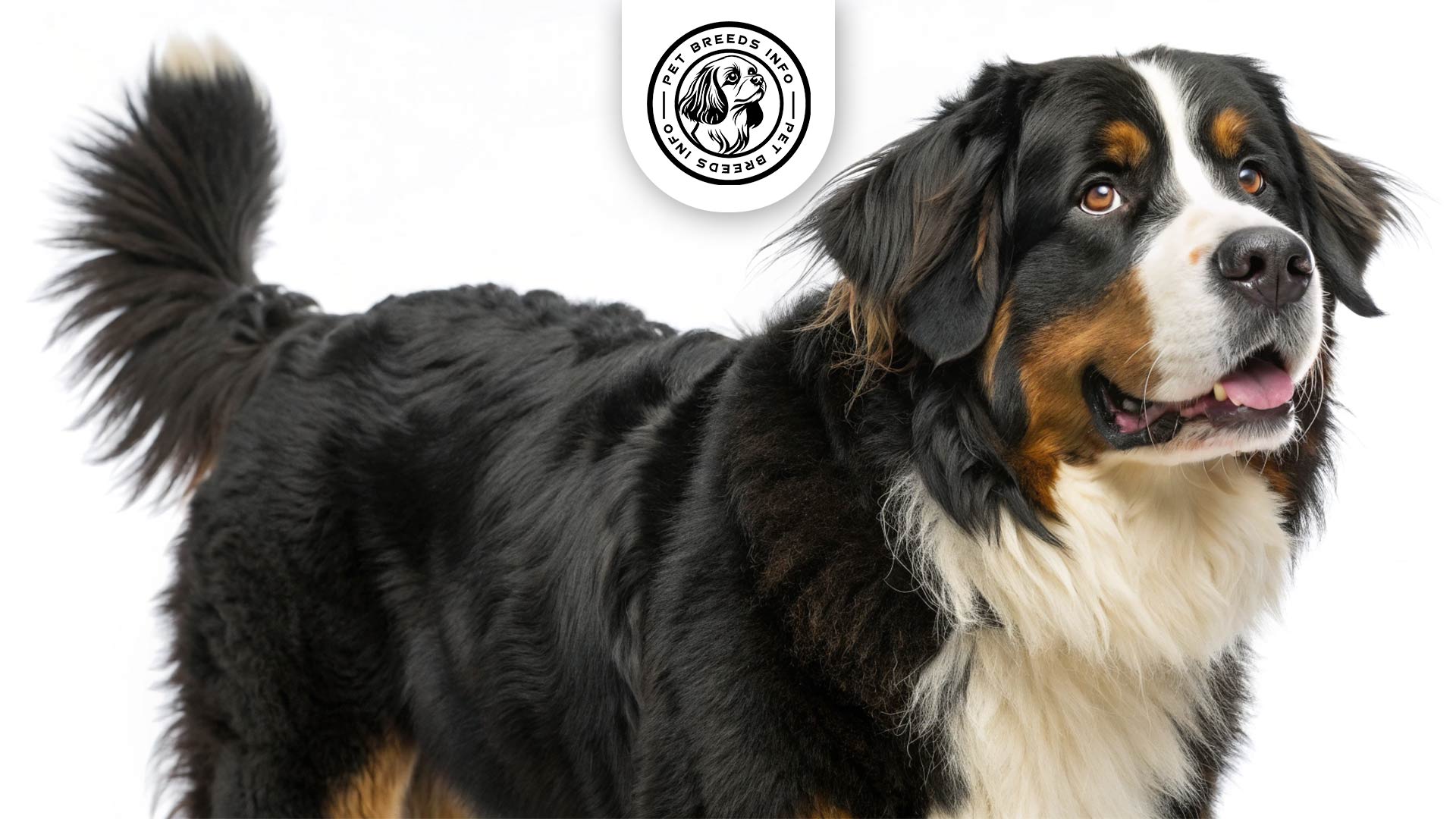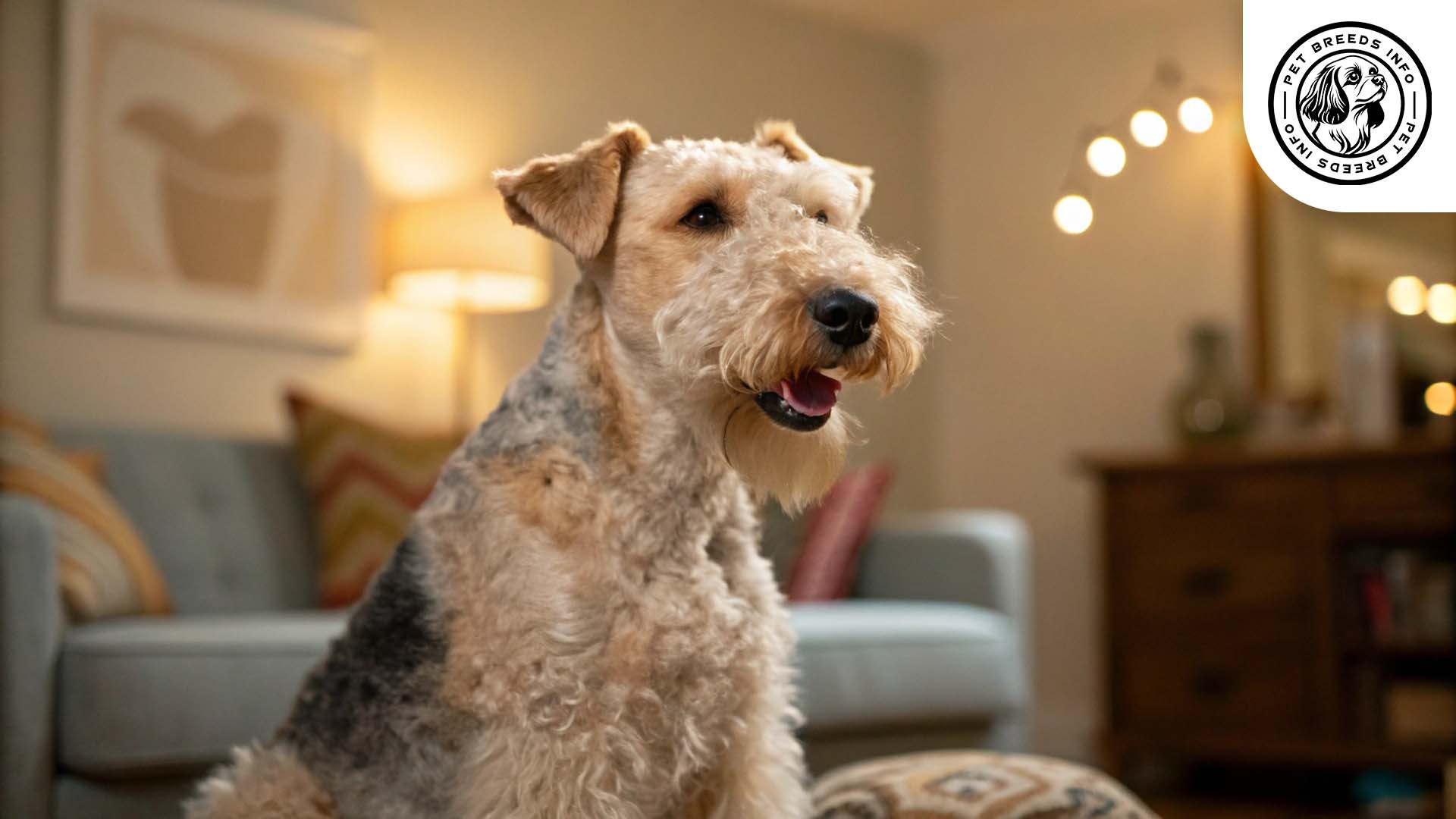Belgian Sheepdog Breed: Size, Health, Price & Personality
General Introduction of the Breed
The Belgian Sheepdog, also known as the Groenendael, is a herding breed originating from Belgium. It is one of the four recognized varieties of Belgian Shepherd dogs, the others being the Malinois, Tervuren, and Laekenois.
This breed was developed in the late 19th century by Belgian breeders who wanted a versatile working dog with strong herding and guarding abilities. Over time, the Belgian Sheepdog has excelled in various roles, including military and police work, search and rescue, and companionship.
Table of Contents
| Color | Black |
| Weight | Males: 55-75 lbs (25-34 kg); Females: 45-60 lbs (20-27 kg) |
| Lifespan | 12-14 years |
| Diet | High-quality dry or wet dog food, supplemented with fresh proteins and vegetables. Avoid chocolate, onions, grapes, and fatty/processed foods. Two meals per day recommended. |
| Care | Daily exercise (long walks, running, agility, herding). Regular brushing (2-3 times/week, more during shedding). Bathe when needed, trim nails, clean ears, dental care. Provide shade and water in hot weather. |
| Health | Prone to hip dysplasia, progressive retinal atrophy, epilepsy, thyroid disorders. Regular vet check-ups, vaccinations, parasite prevention, joint health support. |
| Nature | Intelligent, loyal, protective, active, trainable, cautious around strangers, affectionate with family, strong herding instincts. Requires early socialization and consistent training. |
| Price | $1,000 – $2,500 (from breeders). Adoption from shelters/rescues is a more affordable option. |
Physical Characteristics
The Belgian Sheepdog is a medium-to-large-sized breed. Males typically stand between 24 to 26 inches tall and weigh between 55 to 75 pounds, while females are slightly smaller, standing 22 to 24 inches tall and weighing 45 to 60 pounds.
Its distinguishing feature is its long, dense, and double-layered black coat, which provides insulation and protection. The coat is straight and abundant, with a particularly thick mane around the neck and chest.
The breed has almond-shaped, dark brown eyes that exhibit intelligence and alertness. Its ears are triangular and erect, adding to its attentive expression.
The tail is long and slightly curved when in motion, complementing its elegant and well-proportioned physique.
Read More: Beagle Dog
Personality and Temperament
The Belgian Sheepdog is highly intelligent and eager to learn, making training relatively easy for experienced owners. It thrives on mental stimulation and physical activity.
It is an energetic and active breed that requires plenty of exercise and engagement to stay happy. Its attachment to its owner is typically strong, displaying loyalty and protectiveness.
This breed is friendly yet cautious around strangers, requiring early socialization. It is affectionate and gentle with family members, including children, and can coexist with other pets if properly introduced.
The Belgian Sheepdog has strong herding instincts and may exhibit playful behavior such as nipping at heels. It is also sensitive to environmental changes and responds well to a structured routine.
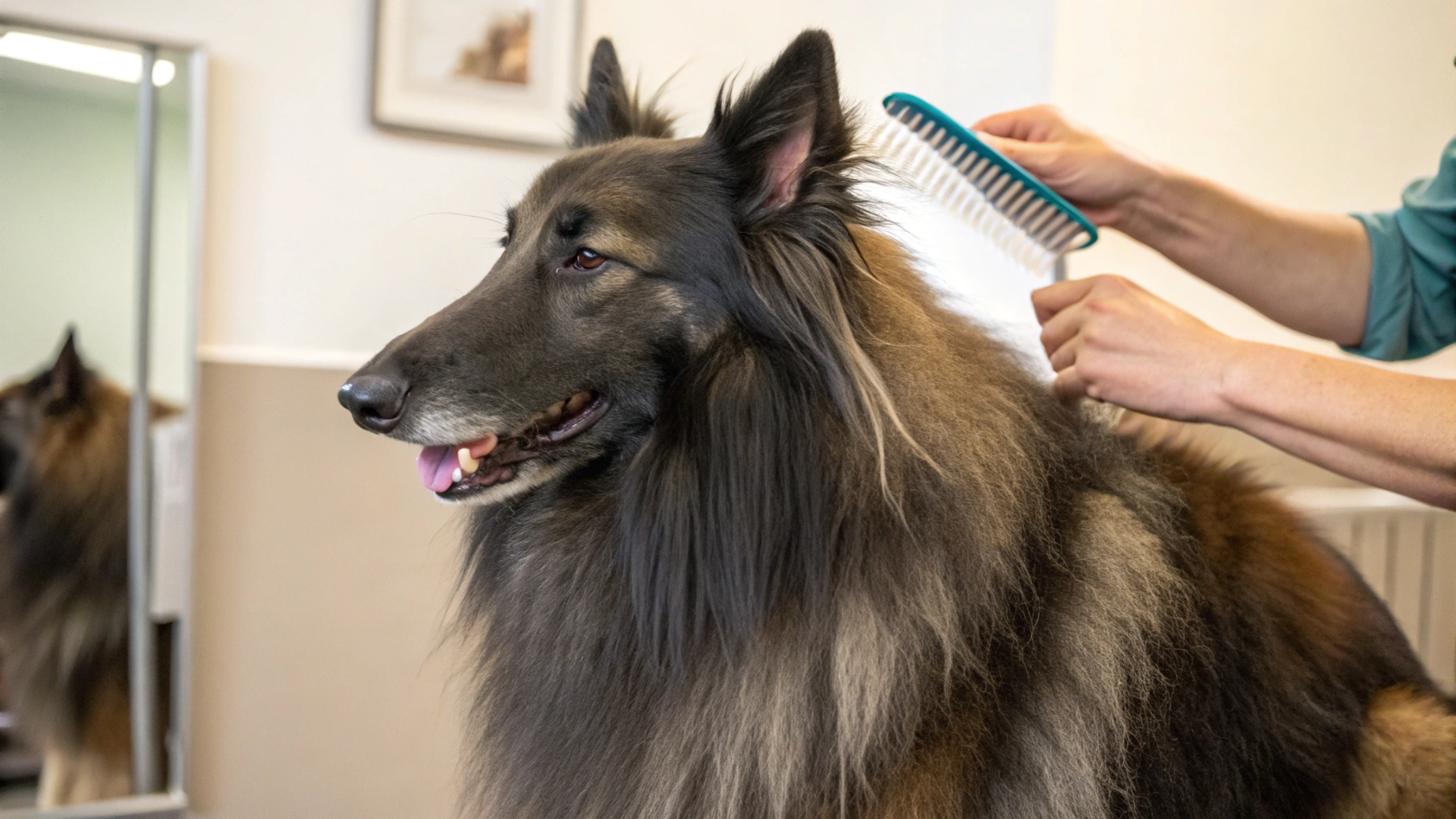
Care and Maintenance Requirements
This breed requires daily exercise, including long walks, running, agility training, or herding activities. A spacious environment, such as a home with a yard, is recommended but not mandatory if exercise needs are met.
Grooming involves regular brushing, at least two to three times per week, to manage shedding and prevent matting. Seasonal shedding increases brushing needs.
The Belgian Sheepdog is sensitive to extreme heat, so it should have access to shade and water during warm weather. It tolerates cold temperatures well due to its dense coat.
Routine hygiene practices include bathing when necessary, nail trimming, ear cleaning, and dental care to maintain overall health.
Diet and Nutrition
A balanced diet consisting of high-quality dry or wet dog food is recommended, supplemented with fresh proteins and vegetables. Some owners opt for a raw diet, but this should be done under veterinary guidance.
Avoid foods like chocolate, onions, grapes, and overly fatty or processed foods.
Portion sizes depend on age, weight, and activity level, but generally, two meals per day are recommended to maintain energy levels and digestive health.
Read More: Basenji Dog Breed
Health and Common Medical Issues
The Belgian Sheepdog is a generally healthy breed but is prone to certain genetic conditions, including hip dysplasia, progressive retinal atrophy, epilepsy, and thyroid disorders.
Its lifespan ranges from 12 to 14 years, with regular veterinary care enhancing longevity.
Routine vaccinations and check-ups are essential, as are preventative treatments for parasites and joint health support.
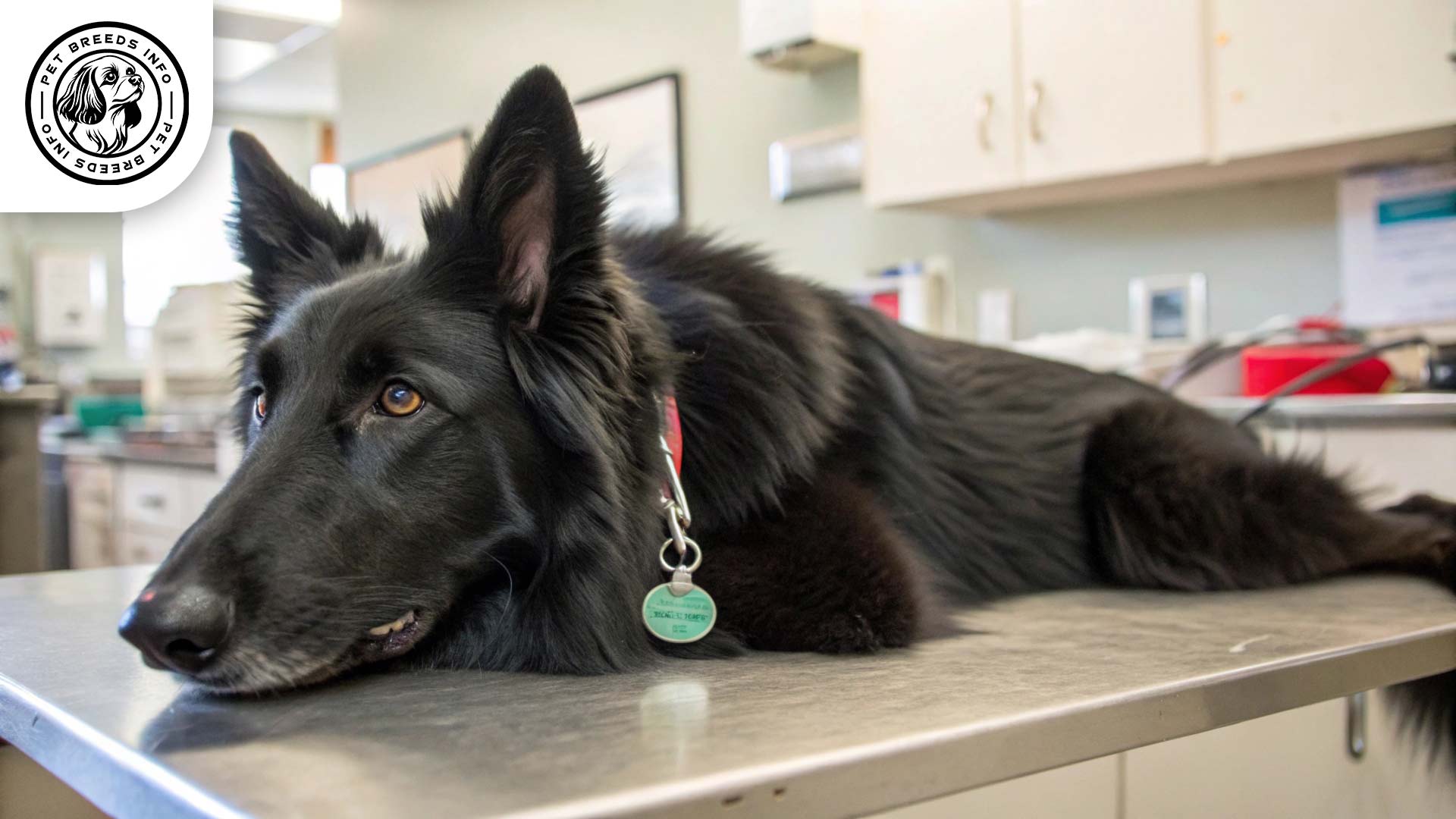
Training and Behavior Management
This breed is intelligent and highly trainable, responding well to positive reinforcement techniques such as praise and rewards.
Early socialization and obedience training are crucial to managing its protective instincts.
Consistency and structured commands help reinforce good behavior, and agility or obedience competitions can provide additional engagement.
Interaction with Other Animals and Humans
The Belgian Sheepdog is a good family companion and gets along well with children, provided interactions are supervised and respectful.
It can live peacefully with other animals but has a strong herding instinct that may lead it to chase or round up smaller pets.
This breed is well-suited for active individuals or families looking for a loyal and intelligent companion.
It is affectionate and thrives on companionship, making it less suited for those who are frequently away from home.
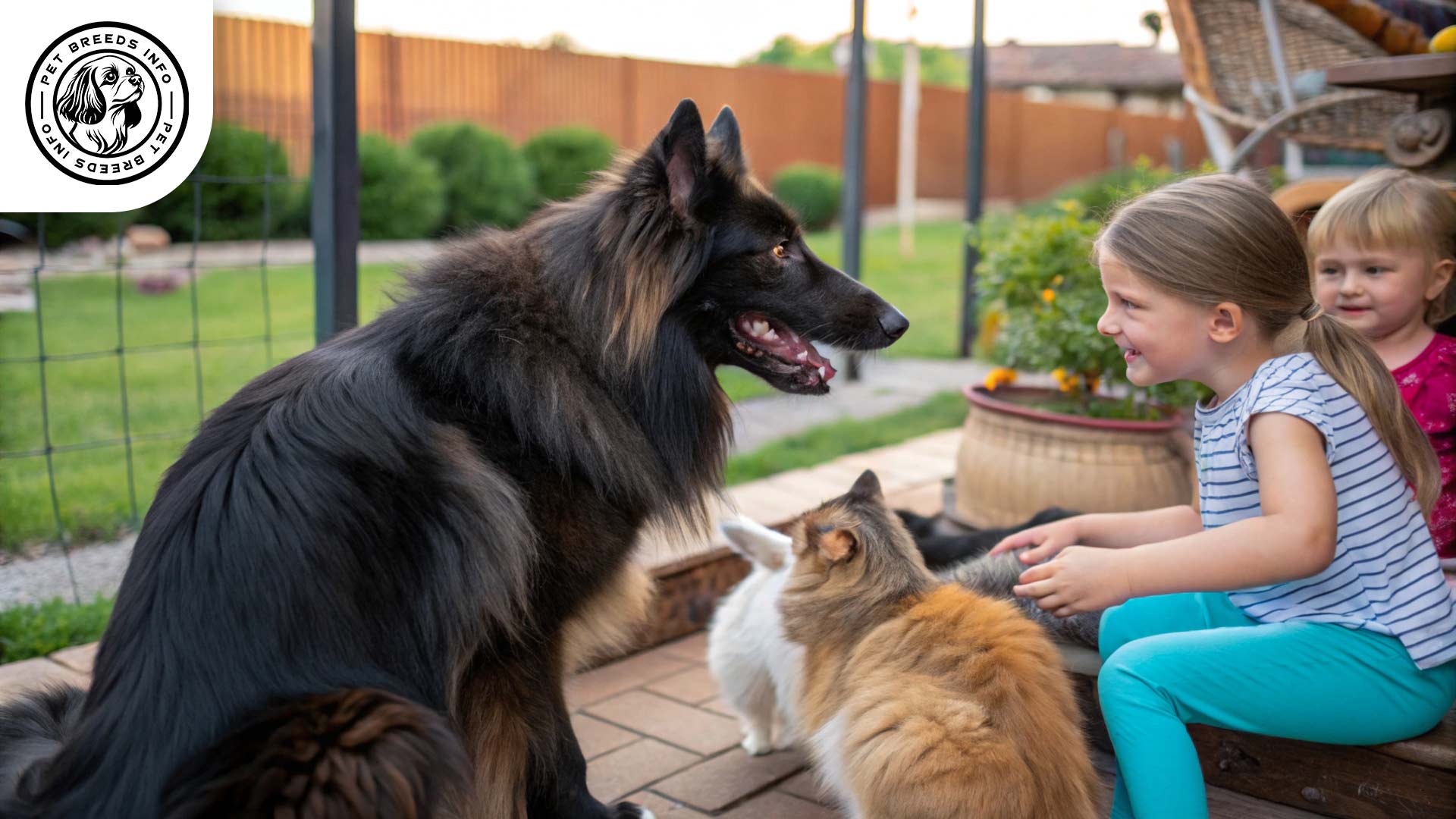
Price and Availability
The cost of a Belgian Sheepdog depends on lineage and breeder reputation, typically ranging from $1,000 to $2,500.
Adopting from shelters and rescue organizations is an option, offering a more affordable and ethical approach.
When purchasing from breeders, it is important to choose responsible and ethical sources that conduct health screenings.
Read More: Belgian Malinois Dog
Conclusion and Final Thoughts
The Belgian Sheepdog is a devoted, intelligent, and highly trainable breed, making it ideal for active owners who can provide the necessary physical and mental stimulation.
Its ideal home includes an engaged family and a yard for exercise, though it can adapt to apartment living with sufficient activity.
Potential owners should consider the breed’s high energy levels, grooming needs, and strong attachment before committing.
With proper care, training, and attention, the Belgian Sheepdog makes a fantastic companion, excelling in protection, herding, and companionship.
FAQ
What are the key characteristics of a Belgian Sheepdog’s temperament?
The Belgian Sheepdog is known for its intelligence, loyalty, and protective nature. They are active and trainable, but can be cautious around strangers. Early socialization and consistent training are crucial.
How much exercise does a Belgian Sheepdog need daily?
This breed requires a significant amount of daily exercise, including long walks, running, agility training, or herding activities. A spacious environment like a yard is ideal, but they can adapt to apartment living if their exercise needs are met.
What are the grooming requirements for a Belgian Sheepdog?
They have a long, dense, double-layered coat that requires regular brushing, at least two to three times per week, to manage shedding and prevent matting. Seasonal shedding increases brushing needs.
What are some common health issues in Belgian Sheepdogs?
This breed is prone to certain genetic conditions, including hip dysplasia, progressive retinal atrophy, epilepsy, and thyroid disorders. Regular veterinary check-ups and preventative care are essential.
How much does a Belgian Sheepdog typically cost?
The cost of a Belgian Sheepdog from a breeder typically ranges from $1,000 to $2,500, depending on lineage and breeder reputation. Adopting from shelters and rescue organizations is a more affordable option.
